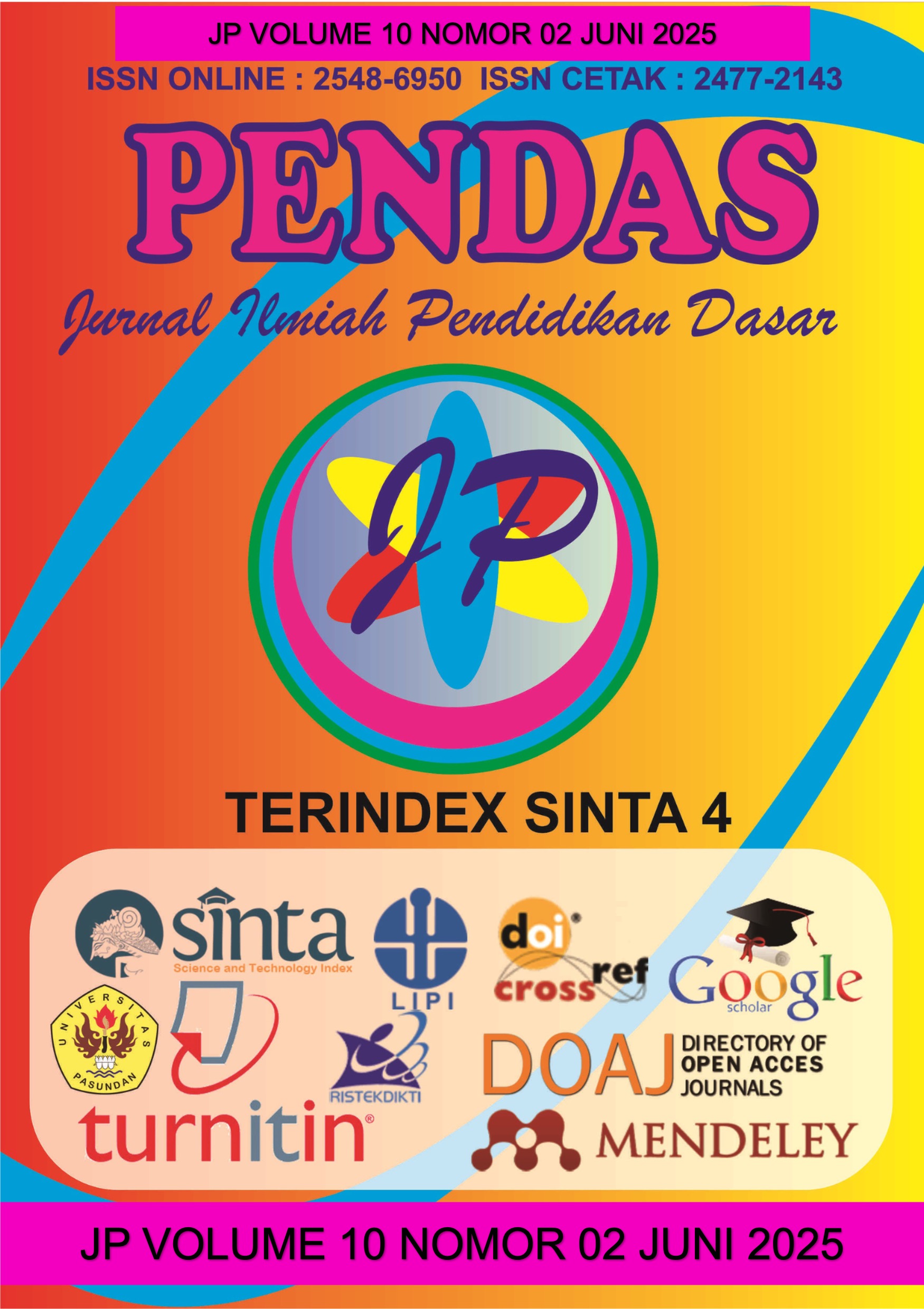PENGARUH MODEL PEMBELAJARAN BERBASIS MASALAH BERBANTUAN KOMIK DIGITAL TERHADAP KEMAMPUAN BERPIKIR REFLEKTIF SISWA MATERI TRANSFORMASI ENERGI DI SEKITAR KITA
DOI:
https://doi.org/10.23969/jp.v10i02.23278Keywords:
problem-based learning, digital comics, reflective thinking, energy transformationAbstract
This study was conducted due to the low learning outcomes of students in the topic of energy transformation around them and the underdeveloped ability of reflective thinking. The aim of this research is to analyze the impact of implementing the Problem-Based Learning (PBL) model combined with digital comics on enhancing students' reflective thinking skills. The research method used is descriptive quantitative, with the subjects being fourth-grade students at SDN Margorejo 1/403. The study sample consisted of 27 students from class IV B and 27 students from class IV C. Data collection was carried out through observations, written tests, questionnaires, and documentation. The findings indicate that the use of the Problem-Based Learning model supported by digital comics significantly boosts students' learning motivation. Moreover, the application of this method positively impacts the learning outcomes of fourth-grade students at SDN Margorejo 1/403, particularly in enhancing their reflective thinking skills. Overall, this learning model falls into the effective category. The study results demonstrate a significant improvement in students' reflective thinking. The average pretest score for experimental class 1 (IV B) was 74.07, while experimental class 2 (IV C) achieved 91.95. After the intervention, the posttest average for both classes was the same, at 86.11. The hypothesis test results showed a significance value (Sig. 2-tailed) of 0.000, proving the high effectiveness of this learning method in developing students' reflective thinking skills. Therefore, it can be concluded that the implementation of digital comics in the Problem-Based Learning model provides a positive contribution to enhancing the reflective thinking abilities of fourth-grade students at SDN Margorejo 1/403 Surabaya.
Downloads
References
Hamdu, & Agustina, L. (2011). Pengaruh Motivasi Belajar Siswa Terhadap Prestasi Belajar IPA di Sekolah Dasar. Jurnal Penelitian Pendidikan, 12(1), 90–96.
Nurafrilian, Sukamanasa, & Suchyadi. (2022). Pengembangan Media Komik Digital Berbasis Canva pada Muatan Pelajaran Bahasa Indonesia Materi Sumber Energi. Dialektik: Jurnal Ilmiah PGSD STKIP Subang, 8(2), 2108–2118.
Rahmadani, A., Syariful, & Restavia, O. (2022). Dampak Program Kampus Mengajar Terhadap Keterampilan Pemberian Layanan Bimbingan Konseling di Sekolah Dasar: Studi Kualitatif pada Mahasiswa BKI Universitas Al-Azhar Indonesia. Jurnal Al-Azhar Indonesia, 7(1), 66–72.
Rosmiati, Liliasari, Tjasyono, & Ramalis. (2020). Physics pre-service Argumentation to Increase Reflective Thinking Capabilities. Journal of Physics: Conference Series, 1521(2).
Rustamana. (2022). Penelitian Metode Kuantitatif.
Safitri, E., Dewi, C., & Supandi. (2023). Upaya Meningkatkan Hasil Belajar IPAS Melalui PBL (Problem Based Learning) Pada Siswa Kelas IV SDN Joho 2. Seminar Nasional Sosial, Sains, Pendidikan, Humaniora, 2(1), 441–447.
Satianingsih. (2024). Pengaruh Model Pembelajaran Problem Based Learning Berbantu Aplikasi Genially Terhadap Kemampuan Berpikir Kritis. Jurnal Pengembangan Pendidikan, 8(6), 291–297.
Siregar, A., & Siregar, D. . (2021). Analisis Evaluasi Pengembangan Media Komik Digital Pada Manajemen Informatika. Politeknik Negeri Sriwijaya, 2(1), 114–126.
Sugiyono, S. (2018). Metode Penelitian Pendidikan Pendekatan Kualitatif, Kuantitatif dan R & D. Alfabeta, Bandung.
Wihartanti, A. R. (2022). Partisipasi Peserta Didik Dalam Pembelajaran Bahasa Inggris di Sekolah Dasar pada Blended Learning. Jurnal Cakrawala Pendas, 8(2), 367–377.
Downloads
Published
Issue
Section
License
Copyright (c) 2025 Pendas : Jurnal Ilmiah Pendidikan Dasar

This work is licensed under a Creative Commons Attribution 4.0 International License.



















